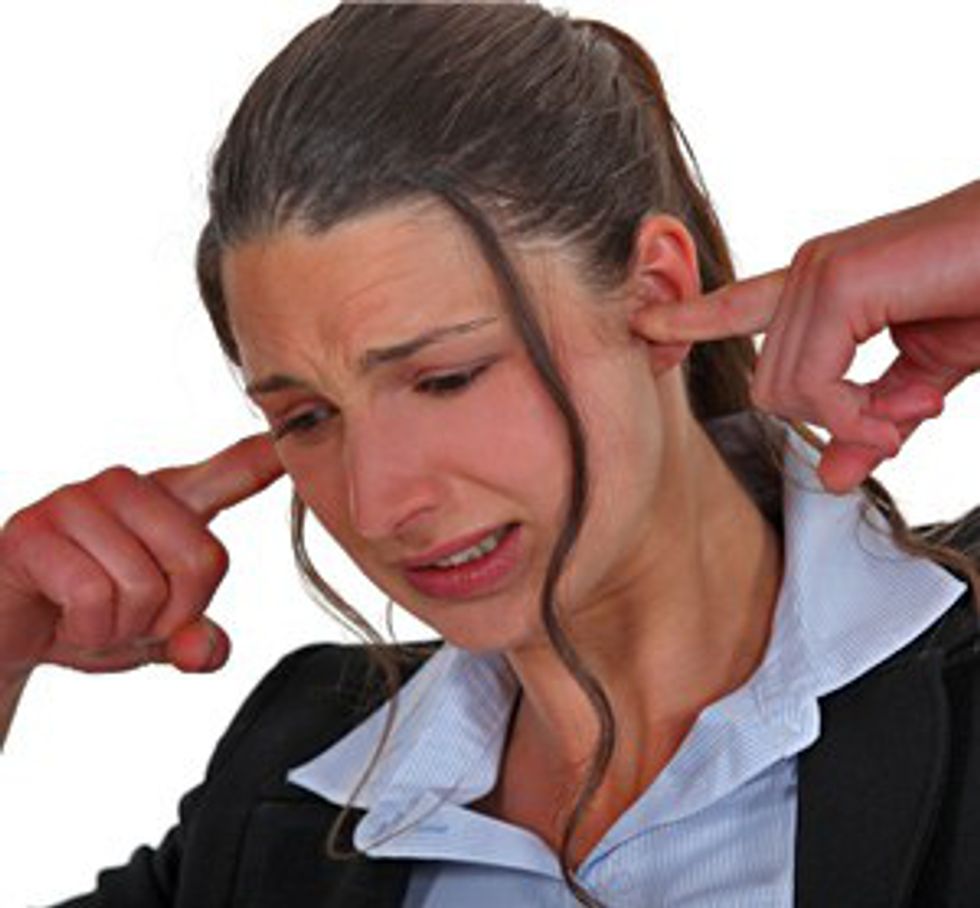Heart starts pounding. You can’t think straight because the thing you can’t stand will not stop; it’s a horrible noise! You look to the source and try to plug your ears. It helps a little, but you know the sound is still being made and then it’s almost just as bad imagining the sound as it is actually hearing it. It starts to feel like walls are closing in, cutting off your life source. You can’t pay attention to anything else and, if given the choice, you might say you’d rather die than have to listen to it any longer. You clench your teeth. The noise continues, so you ask the culprit to please stop. They think you just find it annoying, so they keep doing it anyway. Anger fills you until you feel like you’ll explode unless that confounded noise stops, then the tears come as you start breathing harder and harder. You wouldn’t wish this pain on anyone...except, maybe, the person making the noise at the time, but just so they understand that you’re not making it all up. It all last just a handful of seconds, yet it feels like much longer.
Though this may seem extreme and the noise usually subsides before producing each and every one of these reactions, I have experienced them all personally at some point. If you look in the online dictionary, it defines Misophonia as “hatred of sound.” Though it does not include all sound, it is still a disorder. One that is rarely diagnosed, but this neuropsychiatric disorder exists. It’s not one that you are born with. It is one that grows over time as you develop triggers and start to realize what they are.
Because no one lives the same life, triggers are different for each person. They have to do with the individual’s personal experiences: a noise that links itself to an experience where you feel annoyed or angry or unhappy or frustrated. With Misophonia, often, the next time the same sound is made, the annoyance, anger, sadness, and frustration combine, causing you to hate the sound itself rather than what happened while the sound was being made originally.
A few triggers, which I happen to have personally, are snoring, teeth grinding, chewing with the mouth open, and, my least favorite of all, popping/cracking joints: toes, necks, and fingers - they’re the worst. Hearing these noises causes strong imagery in my brain; images that blow up and intensify the louder the dreaded noise gets. I know some people share these same triggers, but I haven’t yet had the chance to find out what the pain is like for them.
I have learned, however, that often, individuals with Misophonia can’t stand being in social gatherings because of this disorder, but some just work really hard on ignoring it or moving far enough away that the noise isn’t as loud. Convincing yourself that something doesn’t bother you is easier said than done, but it can be accomplished. Through some research I have done, I have concluded that the brain can actually convince itself that the sounds aren’t as bothersome, but it takes a lot of practice.
Living with Misophonia is usually like not having a problem at all. Triggers tend to cause pain for a short time, but it’s only a short time. Not thinking about it and not paying attention to the disorder most of the time makes life go back to normal. Think of it as a superpower! Most people without it have heard the same noises so often that they usually don't notice when the sound is being made. Sounds stand out much more when you have Misophonia, so even though I hate my triggers, I do think it’s cool being able to notice more. It’s much more fun to live with it when you think that way.




















